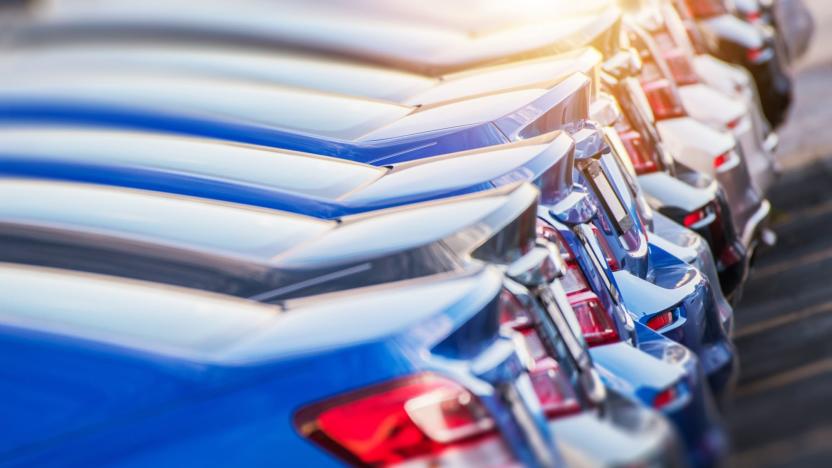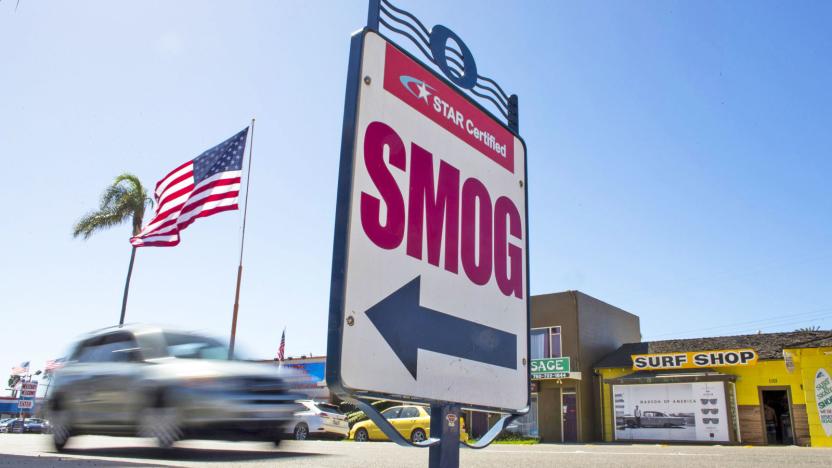CARB
Latest

DOJ reportedly ends antitrust investigation over reducing car pollution
Last year the Trump Administration sought to roll back the Obama Administration's Clean Power Plan that pushed for higher fuel efficiency standards. It has also tried to stop states from like California from setting their own standards that exceed those of the federal government. Despite that, several automakers, including Ford, BMW, Volkswagen and Honda, voluntarily reached an agreement with the state of California on a slightly lower target. That was quickly followed by word of a Department of Justice antitrust investigation into the move, however today the New York Times reports it has come to an end, finding that the companies didn't break any laws by voluntarily agreeing to try to reduce the pollution created by their vehicles.

California will require zero-emissions buses by 2040
California isn't just interested in taking fossil fuel cars off the streets -- it wants to clean up buses, too. The state's Air Resources Board has voted to require that all buses are emissions-free by 2040. The transition will start in earnest in 2029, when California will require that all new buses ditch fossil fuels. Transit agencies will have access to subsidies (plus funds from the state's settlement with VW over Dieselgate) to help soften the blow of upgrading their fleets.

California's new car emission standards defy the White House
The Trump administration may be rethinking car efficiency regulations, but that isn't stopping California from putting its foot down. The state's Air Resources Board has finalized car emissions standards for 2022-2025 that the White House still wants to review, creating the potential for a conflict if federal officials rethink the rules. The Board's Mary Nichols even went so far as to blast car makers for turning to the feds, claiming that they were throwing themselves "on the mercy" of the new US government rather than working with California.

Regulators approve VW plan to fix 70,000 more diesel vehicles
Before it can reinvent itself as an EV automaker, Volkswagen still has to clean up the remnants of the ongoing Dieselgate scandal that has cost the company billions in buyback programs, repairs and class action settlements. With so many different models affected, VW has also had a difficult time getting regulators to approve it fixes. However, the Environmental Protection Agency and the California Air Resources Board announced Friday that they have approved the company's plans to repair about 70,000 Generation 3 2-liter engine vehicles.

California rejects VW's recall plan
California isn't happy with Volkswagen recall proposal for its emissions-cheating diesel vehicles. Today the state rejected the automakers plan saying it "contained gaps and lacked sufficient detail," lacked "enough information for technical evaluation" and does "not adequately address the overall impacts on vehicle performance, emissions and safety." So it's back to the drawing board for the company.

California's zero-emissions rebate program ironically runs out of green
Californians will have to look elsewhere to start receiving cash back for buying eco-friendly vehicles, as the California Air Resources Board has just announced that its ever popular rebate program is no more for the time being. CARB, as the board also goes by, launched its Clean Vehicle Rebate Project (CVRP) in March of 2010 with initial funding of over $11 million to go around -- but we knew it wouldn't last. According to the CVRP website, the program has issued a little over $7 million worth of rebates thus far, with the rest pending or reserved for the already existing EV-owners. The board hopes to bring the program back within the next fiscal year by charging it up with $17 million worth of rebates. It'll create more opportunities to get some of these rebates, while simultaneously extending the duration of the CVRP by decreasing the maximum amount to $2,500 (about half of the previous maximum). If you're doing your math correctly, that equates to more than 6,000 total rebates that'll be up for grabs -- opposed to the 1,400 first-rounders who were awarded the rebates already. With luck and some economical upturns, Californian volt-heads can cruise into 2012 with their non-petrol-deficient wallets a little bit fuller.

California Cool Cars regs put the kibosh on radio, cellphone, and GPS reception
We've seen plenty of tech over the years meant to mitigate our destruction of the environment -- from greener autos to Grateful Dead-themed cellphones -- most of which don't really ask us to tone down our consumer impulses all that much. But how about these new "Cool Cars" regulations recently adopted by the California Air Resources Board? By the year 2016, all autos sold in the state must have windows that prevent 60 percent of the sun's energy from entering the vehicle. To achieve this, windows are given a coat of glazing that contains microscopic specs of reflective metal oxide -- which will seriously hamper reception for your GPS, cellphone, and (this is of special interest to Engadget readers) white collar criminal-style work release ankle bracelet. As you can imagine, companies like Garmin are fuming -- although we suppose that if they play this right they can make a killing in the external car antenna business. It just goes to show you -- when it comes to environmental catastrophe, everyone's a victim. [Via AutoBlog]



